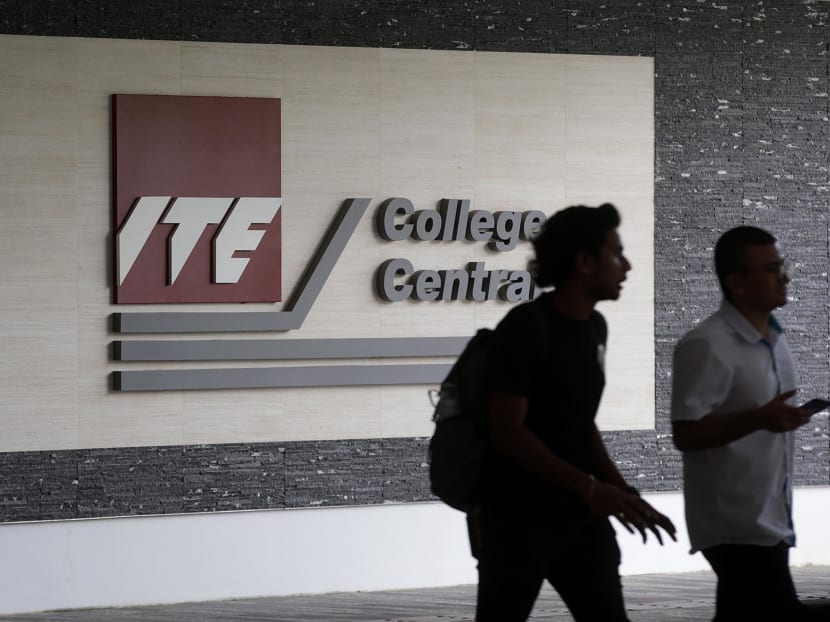Shorter pathway for ITE students to complete Higher Nitec qualifications
SINGAPORE — From 2022, Institute of Technical Education (ITE) students from eight selected courses will have a shorter pathway to complete their Higher National ITE Certificate (Nitec) qualification.

A new track streamlines the Nitec and Higher Nitec curriculum into a three-year programme, instead of the four years it typically takes for GCE N-Level holders to attain the certification.
SINGAPORE — From 2022, Institute of Technical Education (ITE) students from eight selected courses will have a shorter pathway to complete their Higher National ITE Certificate (Nitec) qualification.
This new track streamlines the Nitec and Higher Nitec curriculum into a three-year programme, instead of the four years it typically takes for GCE N-Level holders to attain the certification.
ITE said that presently, 54 per cent of Nitec graduates progress to a Higher Nitec course.
At a media briefing on Thursday (April 29), ITE said that the enhanced curricular structure will do away with overlapping competencies between related Nitec and Higher Nitec courses.
For example, students across all infocomm technology-related courses will go through similar foundation courses such as in programming and cyber security, before they take more specialised modules in years two and three.
ITE said that the streamlined curriculum would be rolled out in phases.
Included in the first phase will be 16 courses that cut across the different industry sectors — eight Nitec and eight Higher Nitec courses.
These courses range from business administration to engineering to fitness training.
This will involve about 2,000 students admitted into the first year and about 1,200 students — consisting of GCE O-Level holders and those who enrol in the direct entry scheme to polytechnic programme — admitted into the second year.
INCREASING EMPLOYABILITY
Besides the shorter pathway, the enhanced curricular structure aims to increase students employability by integrating two industry attachments in the three years.
Students will go through a three-month industry attachment in the second year and a six-month industry attachment in the third year of the programme to build workplace competencies.
Right now, students go through industry attachments during both their second year of Nitec and Higher Nitec courses, ranging from three to six months.
ITE said that under the new pathway, the two attachment stints will be more integrated. For example, students may be attached to the same firm to build on their experience and deepen their skills.
This will prepare students to be more work-ready and ensure their skills are more industry-relevant, it added.
As this is a “significant shift involving curriculum redesign and restructuring”, ITE said that it will review the outcomes of the first phase and make necessary adjustments before involving more courses.
It aims to transit about 80 per cent of the courses in 2024 and the remaining courses in 2026.
Students may apply for admissions to the eight courses under the first phase of implementation through the early admissions exercise in May or the joint intake exercise in December.
These students will automatically be enrolled into the three-year curricular pathway leading to a Higher Nitec qualification.
Dr Maliki Osman, Second Minister for Education who led a review on the enhanced curricular structure, said that ITE took into account extensive feedback raised during engagements with stakeholders — which include ITE students, parents, staff members and employers.
Speaking at the opening ceremony of the ITE-Sembcorp centre for sustainable solutions on Friday, he said: “The enhanced ITE curricular structure represents an important milestone in our ongoing review of opportunities and pathways in applied education, recognising future opportunities in the new economic landscape.”
As the aspirations and needs of students have evolved, along with the demands of industry and the ever-changing economic environment, Dr Maliki said it is imperative that the Government continues to seek feedback on how pathways and curriculum offerings can be enhanced for the generation to come.
“As we ready our graduates, we hope the industry will reciprocate with commensurate remunerations that will inspire them to scale greater heights,” he added.











